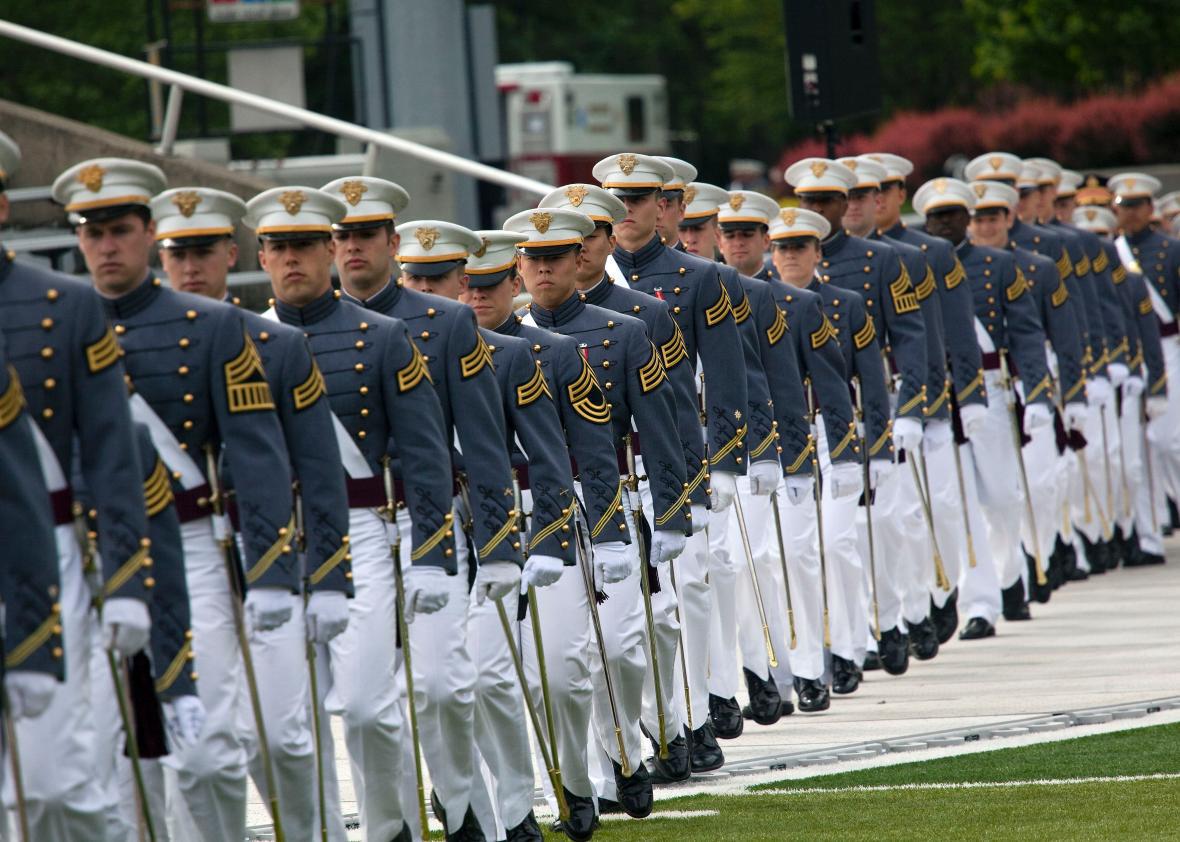The U.S. Military Academy has opened an investigation into a photo of 16 black, female cadets in uniform with their fists raised. The photo has raised a bit of controversy online in recent days as some have said it suggests support for the Black Lives Matter movement, which could amount to a violation of Army rules against participating in political activity while in uniform. It’s unclear what the repercussions could be for the 16 cadets in the photo, who are scheduled to graduate on May 21.
The women took the shot as part of a series that follows a tradition known as an “Old Corps photo,” in which groups of cadets take pictures in traditional uniforms. The Army Times was the first to write about the photo, reporting that “the image has been shared widely in military circles.” In its first story, Army Times was sure to point out that while the raised fist is now associated with the Black Lives Matter movement, it’s hardly original and has been “used for centuries to symbolize resistance by a number of groups, from labor unions to suffragists to socialists to the Black Panthers.”
The chairwoman of the academy’s Board of Visitors, Brenda Sue Fulton, later told Army Times that while she tweeted out a different photo of the 16 women, she would not have done the same with the picture that shows them raising their fists. “I would not have re-tweeted the raised-fist photo because I am well aware that our culture views a black fist very differently from a white fist,” Fulton said. “I knew it was their expression of pride and unity, but I am old enough to know that it would be interpreted negatively by many white observers.”
A West Point graduate who talked to the students insists “they weren’t trying to imply any allegiance to any movement” and are shocked at the controversy. Even if their intention wasn’t to make a political statement, the cadets could still get in trouble, a lawyer tells Army Times. “My experience with military justice and the way discipline is handled, is that intent doesn’t always matter 100 percent,” the lawyer said. “Sometimes the actions themselves are enough to bring discredit.”
The 16 cadets in the now-controversial photo “represented all but one of the black women in a graduating class of about 1,000, a meager 1.7 percent,” notes the New York Times. Approximately 22 percent of the 1,270 cadet candidates in the West Pont Class of 2019 are women and 15 percent are African-American, according to the academy.
